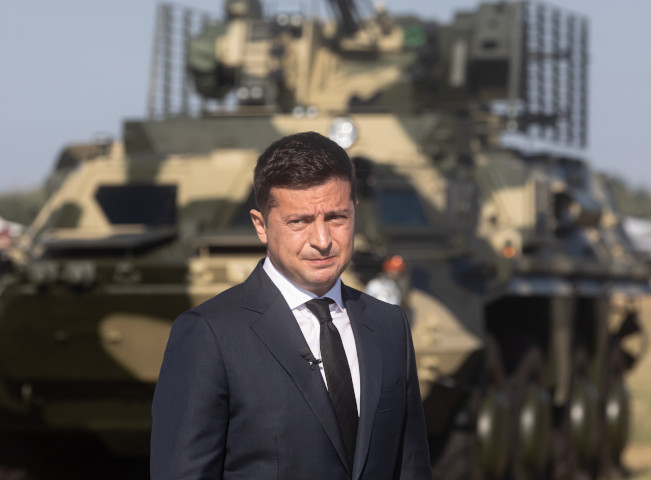PRISCELLA MABOR
WHEN the Ukranian President Volodymyr Zelensky was offered safe passage out of his country’s warzone in the first days following the Russian invasion, he firmly announced: “I need ammunition, not a ride.“
As leader of 44 million Ukranians, facing down a neighbouring country of 144 million, he was asked the ultimate test of any leader facing occupation.
His response was one of resistance facing down the Goliath of Russian might, and he communicated in an authentic and plain-spoken manner which appeared to unite a nation. Overnight he assumed the position of wartime leader in lock step with the citizens of his country.
Since that day in February, every speech Zelensky has delivered from behind a desk, out on the streets or in a bunker standing side by side by with the citizens of Ukraine, has been carefully dissected.
More recently, he has been addressing Parliaments of many countries and on March 30, he addressed the Australian Federal Parliament.
Many are looking now for clues as to what and how explains this one person and their elevation to global hero / leader. For some in elected positions, questions of leadership arise in a crisis. For others, they may be tapped on the shoulder or they may volunteer for the role.
At challenging times like this the Community Migrant Resource Centre has been reflecting on heroism, leadership, sacrifice and collective action on a more localized level.
At our recent 25-year Anniversary, we paid tribute to Weyata Badu who worked tirelessly for the Sierra Leonean community here in Sydney, after the brutal ethnic cleansing campaign in her home country.
When a crisis unfolds, how do we respond as individuals, communities, as a society. As we have learnt from global pandemics and the recent floods, a community-led response generally emerges well before a government, and often operates quietly in the shadows of our suburban streets.
The Ukranian community in Sydney and across Australia has now been called to action. I spoke to Olha who volunteers with the Ukranian Association of Sydney, who was precise in when she assumed a leadership role.” It was 2pm on Thursday the February 24 when Putin started bombing Kiev, then I started work.”
Having fled to Australia following Russia’s invasion and annexation of Crimea in 2014, Olha only relocated to Sydney from Melbourne last year.
Social capital working at its best
“I see myself first as as Ukranian, before I see myself as part of an association. First, I was able to help my family, and then I started helping others with the knowledge I had gained.
Following her own escape with her family, there is much that Olha has learnt over the last 5 – 7 years and that includes how to navigate a number of complex systems. Social capital working at its best.
“I was able to help Ukranians overseas with visa information, explain the process, recommend airlines, talk about entry requirements, where to find accommodation here and access to basics upon arrival.”
For five weeks, Olha has been assuming the role of DFAT, immigration and resettlement; all on a voluntary basis while working part-time as a marketing manager.
This was a crisis that was not completely unexpected but escalated quickly as four million fled across borders and six million became internally displaced.
“I had to build a structure of support overnight and launch a team of volunteers who were coordinating accommodation and the data bases. We then shared our best practice methods, nationally.
“Interestingly, it is not only Ukranians who have stepped forward to take in the new arrivals. We have many Australian families providing housing, plus also Russian families helping. “
Olha and others who fled following the Crimea annexation, are the “pioneers”. Post WW2, Ukranians arrived here, but Crimea ignited a second wave.
“I came on a skilled visa and I knew I was going to get as far away from Europe as possible. It was either going to be Canada or Australia. Europe is at risk and you can see what is happening now.“
While the men stay behind to defend, those arriving are mostly women, children and the elderly. For those in their 80s who have just arrived, they have left their homeland possibly for good.
With the Prime Minister announcing last week, 4, 500 places being allocated for Ukranians over the coming weeks and months, there will no doubt be many more stories like Olha’s out there.
It is these stories that reframe what active citizenship, the restoration of human dignity and serving the needs of the wider community, are all about.
Leadership does not always have to announce itself by hanging a shingle outside the door; it can operate in many shapes and forms to ignite the human spirit in us all.
Priscella Mabor Inclusion Strategy & Innovations Manager a the Community Migrant Resource Centre based at Parramatta. Visit www.cmrc.com.au





